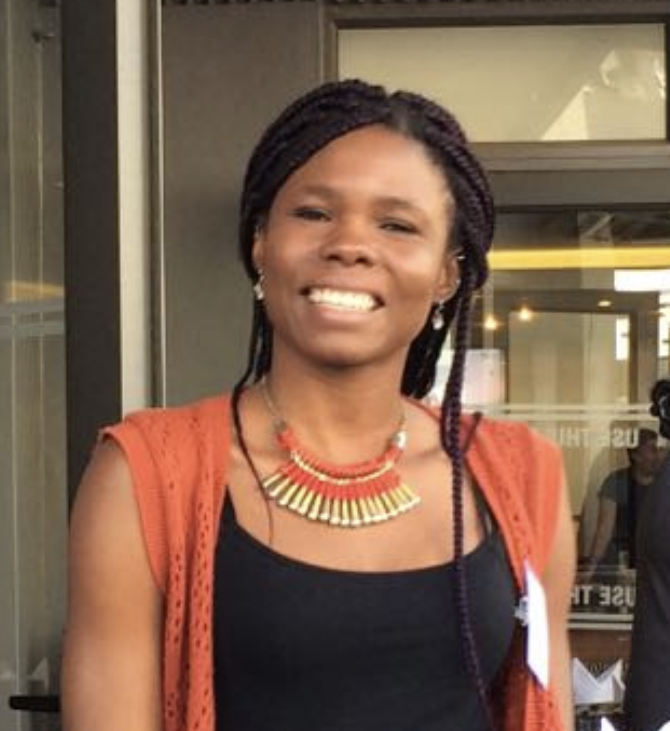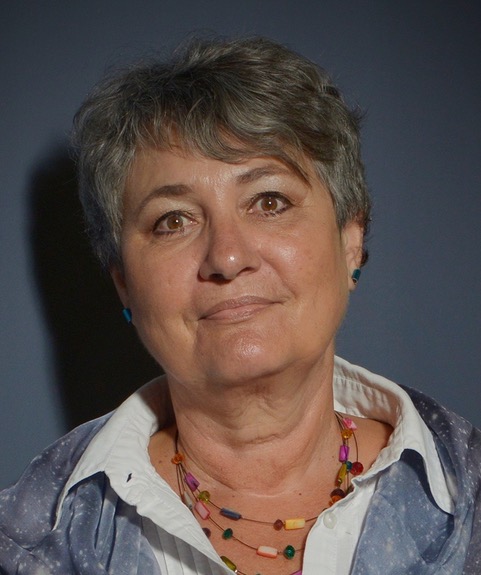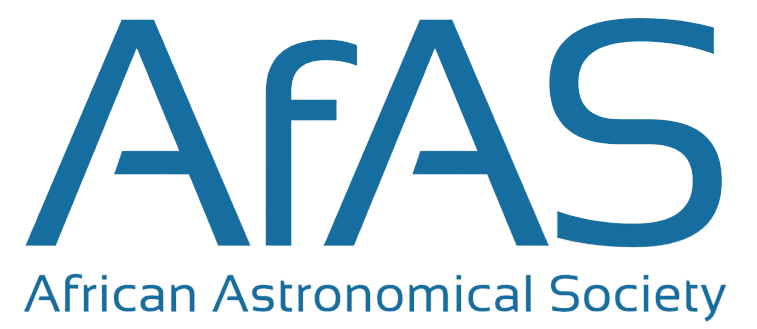First ever African Women in Astronomy Award winners announced
Cape Town – 2 March 2022
Two exceptional women in science are being recognised by the inaugural awards of the African Network of Women in Astronomy. The early career award goes to Dr. Marie Korsaga, Burkina Faso’s first woman astronomer and the senior award goes to Prof. Renée Kraan-Korteweg from South Africa.
———–
The awards, worth €1,500 each, recognise and support the scientific achievements, and contributions to society, of women in Astronomy in Africa. They are given by the African Network of Women in Astronomy (AfNWA), a committee of the African Astronomical Society, and by the International Science Programme of Uppsala University in Sweden.

Dr Marie Korsaga
Don’t let “early career” fool you. Dr. Korsaga has many achievements under her belt. She is the first Burkinabe woman to obtain a PhD in astronomy. Dr. Korsaga is a postdoctoral researcher at the Observatoire Astronomique de Strasbourg in France, and a lecturer at the Université Joseph Ki-Zerbo in Burkina Faso. In her research, Dr. Korsaga works on dark matter and where it is found in galaxies. For that, she uses observations from optical, infrared and radio telescopes, giving her a broad skillset in astronomy. Dr. Korsaga is also a passionate advocate for women in STEM in the global and African astronomy communities. She has given a number of high-profile talks, including a TEDx talk. She has spoken at the African Union and was recently honoured by the city of Huesca, Spain in their newly unveiled sundial. She is also a founding member, and sits on the editorial board, of “L’Astronomie Afrique”, the first francophone online astronomy magazine in Africa.

Prof. Renée Kraan-Korteweg
Prof. Kraan-Korteweg is a senior research scholar at the University of Cape Town in South Africa. She has held a number of high-profile positions over her career, including leading the Astronomy department at the University of Cape Town from 2004 to 2014 and Astronomy department at the University of Guanajuato in Mexico. Her research interests include unveiling the large-scale structure of the universe and understanding how it came to be. She is also a user of astronomical observations from various telescopes and has recently discovered a new supercluster of galaxies hidden behind the Milky Way galaxy. Her work is internationally recognised, and she has received various awards. Prof. Kraan-Korteweg has supervised over 30 graduate students in her career, attracted significant research funding (both for her own work, and for the departments she has led) and has been a key advocate for the growth of astronomy on the African continent as well as the support of women in astronomy. The award acknowledges the vast impact she has had for women in Astronomy in Africa.
Many nominations were submitted late 2021 for the awards, and a prestigious panel of judges was invited to evaluate the submissions. The panel comprised:
- Prof. Stephan Buchert, Senior Scientist at the Swedish Institute of Space Physics, Uppsala, Sweden
- Prof. Catherine Cesarsky, an Argentine and French astronomer, formerly president of the International Astronomical Union and the director general of the European Southern Observatory. She is currently Chair of the Council of the Square Kilometre Array Observatory.
- Prof. Ewine van Dishoek, a Dutch astronomer and chemist, formerly President of the International Astronomical Union and a pioneer of the field of astrochemistry.
- Prof. Debra Elmegreen, an American astronomer, and the first woman to graduate from Princeton University with a degree in astrophysics and is President of the International Astronomical Union.
- Mr Kevin Govender, Director of Office of Astronomy for Development and the joint recipient of the Edinburgh Medal together with the International Astronomical Union.
- Prof. Ernst van Groningen, former Programme Director, International Science Programme, Uppsala University, Sweden.
- Dr Edward Jurua, astrophysicist, and leader of the research group in astrophysics and space science at Mbarara University of Science and Technology (MUST), Uganda.
- Dr Jamal Mimouni, an Algerian astrophysicist and the President of the African Astronomical Society.
- Prof. Samaya Nissanke, an astronomer at the University of Amsterdam, the Netherlands, and one of the recipients of the New Horizons in Physics Prize from the Breakthrough Prize Foundation.
- Prof. Mirjana Povic, a Serbian-Spanish astrophysicist who works at the Ethiopian Space Science and Technology Institute; inaugural laureate of the Nature – Estée Lauder Inspiring Science Award and founding board member of AfNWA.
We congratulate the winners of the 2022 African Women in Astronomy Awards.
— ENDS
Notes to the editors:
African Network of Women in Astronomy (AfNWA)
AfNWA was set up in 2019 to connect and support women in astronomy across the African continent. It forms part of the African Astronomical Society, the professional society of astronomers in Africa. Astronomy is a growing field on the continent with new telescopes being built and producing innovative world-class science, such as the MeerKAT telescope in South Africa.
Contact: Prof. Vanessa McBride, vanessa@astro4dev.org
African Astronomical Society (AfAS)
The African Astronomical Society (AfAS) is the primary organisation representing professional astronomers from across the African continent and is funded by the Department of Science and Innovation in South Africa AfAS is based in Cape Town on the campus of the South African Astronomical Observatory.
https://www.africanastronomicalsociety.org/
Contact: Dr. Charles Takalana, charles.takalana@afasociety.org
International Science Programme
Uppsala University established the International Science Programme (ISP) in 1961. ISP has earned international recognition for effectively strengthening research and postgraduate education capacity in low income countries in the basic sciences chemistry, mathematics and physics.
Contact: Prof. Carla Puglia, carla.puglia@physics.uu.se
